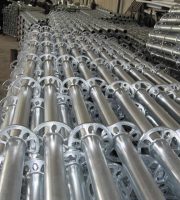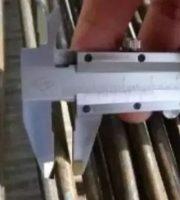The protective layer adopts 20mm thick 1:3 cement mortar.
Waterproof practice of squatting pan: a groove with a depth of 10mm and a width of 20mm shall be reserved between the pipe root of squatting pan and concrete (cement mortar), and the groove shall be filled with sealing paste; Sealing paste shall be added at the connection between the bottom of squatting pan and riser.
During the last construction of the waterproof layer, when the film is not fully cured, a small amount of clean coarse sand can be sprinkled on its surface to enhance the bonding between the waterproof layer and the protective layer; The cement slurry mixed with construction glue can also be used to roughen the surface of the waterproof layer before making the protective layer.
8 waterproof construction (III) waterproof (III) the thickness of waterproof layer shall meet the design requirements.
If you don’t pay attention to the detailed practices, many common quality problems will occur, especially the key points such as indoor waterproof.
Building communication media ID: jianzhong001 toilet construction involves many processes.

11.
20mm wide and 10mm deep grooves shall be reserved between the pipe root and the leveling layer.
Pipe root and corner treatment pipe root, corner pipe root and corner shall be plastered with arc with a radius of 10mm.
7 waterproof construction (II) waterproof (II) waterproof coating shall be painted in several times, and each time shall not be painted too thick.
2.
1.
Toilet base course requirements: the waterproof base course of toilet shall be leveled with 1:2.5 or 1:3 cement mortar, with a thickness of 20mm.
13 quality acceptance and finished product protection after the water storage test is qualified, the waterproof protective layer shall be constructed immediately.
The leveling layer shall be solid without hollowing, and the surface shall be troweled and calendered.
10 waterproof method for pipes passing through the floor: after the riser is positioned, the gap around the floor shall be blocked with 1:3 cement mortar; When the joint is greater than 20mm, fine aggregate concrete shall be used to block it tightly; A groove with a depth of 10mm and a width of 20mm shall be reserved between the pipe root and the concrete (cement mortar), and the groove shall be filled with sealing paste.
The waterproof leveling layer of the toilet at the door shall extend 250 ~ 300mm outside the toilet door to prevent the water in the toilet from leaking through the floor outside the toilet.
If there is any infringement, please contact to delete!) long press the QR code to follow us ▶▶▶。.
Detailed waterproof practice of floor drain: a groove with a depth of 10mm and a width of 20mm shall be reserved between the pipe root of floor drain and concrete (cement mortar), and the groove shall be filled with sealing paste; The drainage slope within 50mm from the edge of the floor drain is 5%.
The gradient of base course requires that the construction of waterproof leveling layer shall be carried out after the construction of leveling layer.
12.
6 waterproof construction (I) waterproof (I) polyurethane waterproof coating shall be applied with rubber scraper, and brush shall be used at pipe root and corner; JS and acrylic waterproof coatings shall be applied with paint brush or roller brush; Cement based permeable crystalline waterproof coating shall be brushed with a hard nylon brush; The interface permeable waterproof liquid should be sprayed with sprayer.
The next brushing direction shall be perpendicular to the previous one, and the number of brushing times shall be subject to the film thickness required by the design.
The drainage slope from the ground to the floor drain is 2%; The drainage slope within 50mm outward from the edge of the floor drain is 5%; The ground of large-area public toilets and bathrooms shall be divided into zones, and each zone shall be provided with a floor drain.

(source: integrated on the Internet, the picture and copyright belong to the original author.
4.
The next painting shall be carried out after the previous coating is cured, and it shall be subject to non stick by hand.
The 13 detailed practices listed in this paper must be done in place during construction.
5.
When polymer waterproof coating and polymer cement waterproof coating are used, the thickness of waterproof layer shall not be less than 1.2mm; The thickness of cement-based permeable crystalline waterproof film shall not be less than 0.8mm or the material control shall not be less than 0.8kg / ㎡; The thickness of composite construction of interface permeable waterproof liquid and flexible waterproof coating shall not be less than 0.8mm; When polyethylene polypropylene waterproof coiled material is bonded with polymer cement, the thickness shall not be less than 1.8mm.
3 moisture content requirement waterproofing polyurethane waterproof coating construction requires waterproof base drying, polymer cement (JS) polymer emulsion (acrylic acid) and other waterproof coatings can be constructed on wet base, but there is no water at the grass-roots level.
The toilet with shower facilities shall be separated from the wall, and the height of waterproof layer shall not be less than 1.8m.
9 height of waterproof layer at the connection between the ground and the wall, the waterproof layer shall return more than 300mm to the wall.
The drainage slope in the area is 2%, and the straight-line length of the slope shall not be greater than 3m; The lobby floor of public toilet and bathroom may not be provided with slope.


